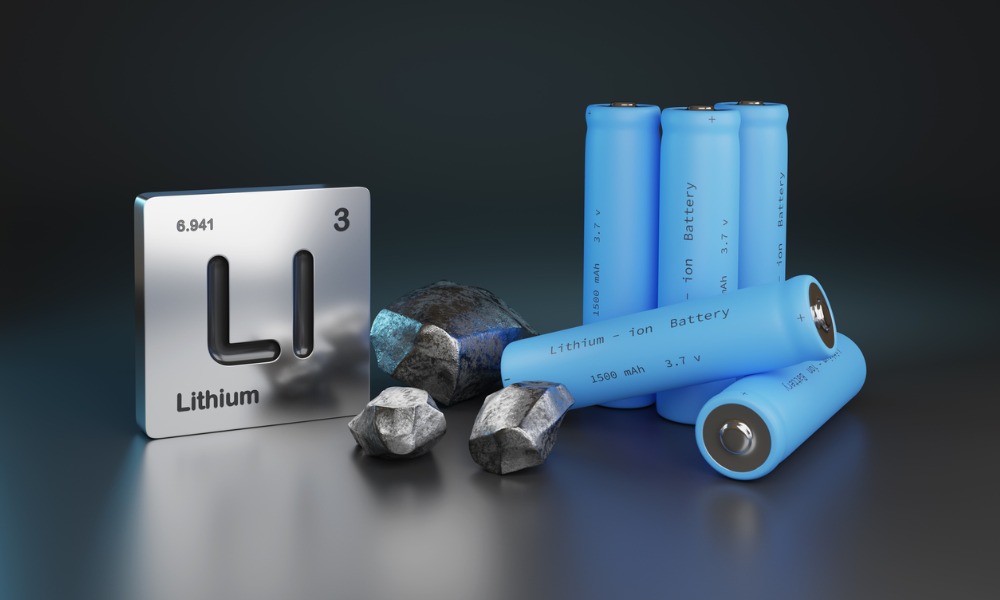Canada is becoming one of the key players in lithium mining, as the world slowly turns to sustainable energy solutions from conventional sources of energy. But as with any other resource, the mining of lithium falls under legal and regulatory frameworks under Canadian laws of different areas.
In this article, we’ll go over the laws that apply to lithium mining, regulatory frameworks, and the irony that lies at the heart of this activity.
What laws apply to lithium mining in Canada?
Mining is regulated by both the federal government and provincial or territorial governments of Canada.
Each government has its own authority on how it controls mining activities in the country. Laws enacted by the federal, provincial, or territorial governments related to mining also apply to the extraction and processing of lithium.
These laws also apply to any other resources mined in Canada, if they fall within the meaning of these laws.
Canada’s lithium mining industry
Lithium mining in Canada can be currently found in five provinces:
- Alberta
- Manitoba
- Ontario
- Saskatchewan
- Québec
These lithium mines are owned and operated by at least 12 domestic or foreign companies.
Traditionally, mining of lithium in Canada is based on hard rock mining. While there are still lithium mines that use this system, mining companies are now developing lithium mines through oilfield brines and industrial wastewater.
This switch to lithium brines is expected to expand the mining sector, a big push for Canada’s critical-minerals strategy. This is also to increase the country’s capacity to export lithium, as its current demand continues to increase.
Higher global demand for lithium is primarily driven by the rising production of rechargeable batteries used in two products: electronic gadgets and electric vehicles.
This switch to sustainable energy through lithium mining in Canada ironically has a negative impact on the environment, such as during its extraction.
Harnessing the economic benefits of resources and minerals, while addressing environmental and cultural concerns, is always a factor in mining lithium.
An example of this is the proposed additional lithium mines in Québec, and some of the ongoing concerns about their operations. Watch this video to know more:
The impact of lithium mining on the environment and Indigenous communities can be addressed legally. Reach out to any of the Lexpert-Ranked best mining lawyers in Québec for ways of battling these problems.
Environmental regulations and compliance
There is no specific federal law on lithium mining in Canada. It is covered by general laws affecting the mining industry in the country.
Each Canadian province governs mining activities within their jurisdiction:
- mineral exploration
- development
- conservation
- management
This applies to land in the province that's owned by the federal government.
Example of these provincial mining laws are Ontario’s Mining Act and British Columbia’s Mines Act.
On the other hand, the federal government regulates certain aspects of mining in Canada, such as:
- mining activities in the three territories, to some extent
- taxation laws applicable to mining
- environmental and Indigenous laws affecting mining activities
The same goes for the ownership of minerals. The federal government – or the Crown – owns the minerals on federal land and offshore. All other minerals are owned by the provinces, which have the power over its exploration, development, conservation, and management.
Foreign investments
In most cases, international companies and foreign investors are involved in the exploration, extraction, and exportation of lithium resources.
Part of the regulatory framework of mining lithium are laws related to foreign investments. One of these is the federal Investment Canada Act (ICA).
Under the ICA, if certain thresholds are reached, these foreign investments will be reviewed by the federal government.
Related to this Act is another federal law, the Competition Act. While the ICA controls foreign investments, the Competition Act covers mergers and acquisitions.
Like the ICA, if transaction thresholds are reached under the Competition Act, notifications must be filed with the Competition Bureau to trigger its review process.
Permits and licenses
Mining companies, including those engaged in lithium mining, must have licenses and permits from the applicable regulating agency.
This includes:
- permits and licenses before any mining activities
- closure and rehabilitation plan
- exploration and extraction permits
- environmental and health permits or licenses
Also read our list of Canadian mining laws and licenses for more infomoration.
Taxation
Tax law is another consideration for companies doing lithium mining in Canada, as provided by the federal Income Tax Act.
Both federal taxes and provincial taxes will apply to mining companies, such as:
- Federal taxes:
- corporate income tax
- goods and services tax (GST)
- payroll levies
- excise taxes
- Provincial taxes:
- corporate income tax
- harmonized sales tax (HST)
- royalties
- payroll levies
- excise and sales taxes
The overlapping of domestic and foreign taxation laws will also come into play, depending on the nationality of the mining companies involved. One consideration in this area is to prevent double taxation on the similar mining company operating in Canada.
Lawyers working for mining companies in Canada also consider the tax reliefs and tax incentives that the Canadian government provides. These are offered by both the federal and provincial government.
Some of these reliefs and incentives that apply to lithium mining companies in Canada are:
- mining taxes and royalties as deductibles from income tax
- capital cost allowances (CCAs)
- Canadian exploration expenses (CEEs)
- Canadian development expenses (CDEs)
- qualifying environmental trust (QET)
- foreign resource expense (FRE) deduction
- flow-through share (FTS)
- mineral exploration tax credit (METC) (until March 2024)
Environmental compliance
As discussed above, environmental compliance is intertwined with the mining industry. Canada’s environmental protection laws are there to address concerns brought by local communities and Indigenous peoples.
Some relevant environmental laws at the federal level that affect lithium mining in Canada include:
- Canadian Environmental Protection Act (CEPA)
- Impact Assessment Act
- Fisheries Act
- Navigable Waters Protection Act
- Species at Risk Act
- Migratory Birds Convention Act
- Transportation of Dangerous Goods Act
This is aside from provincial and municipal laws related to mining, such as those that limit the exploration and development of mineral resources.
Before mining companies start operations, they should have environmental impact assessments as part of the required licenses and permits.
Criminal Code and damages
Lastly, the criminal and civil liabilities of mining companies in Canada would be governed by the federal Criminal Code and the country’s common law.
Each law mentioned above – whether federal or provincial – may also have penalties that can be imposed on violating mining companies.
Lithium mining: balancing progress with legal compliance
Lithium mining in Canada offers exciting economic opportunities, especially as the demand for lithium increases. Complying with the legal and regulatory requirements is crucial in this endeavour.
Developing lithium mining in Canada goes hand in hand with addressing environmental concerns and respecting Indigenous communities remain top priorities. Only then can lithium mining – or any form of mining – be truly sustainable.
Consult with any of the Lexpert-Ranked best Canadian mining lawyers to know more about these laws and the regulatory framework on lithium mining in Canada.





